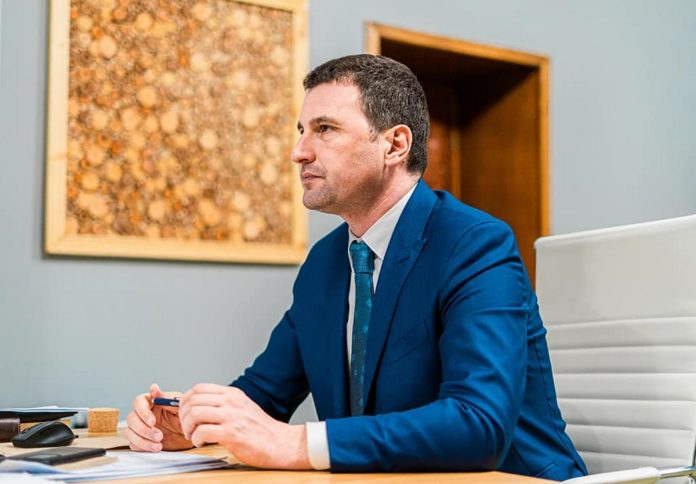Finance Minister Tánczos Barna said on Thursday evening in Craiova that Romania will come close to 100% absorption of funds from the National Recovery and Resilience Plan (NRRP), even if the deadlines for this programme are not extended by the European Union.
„When I say we’ll reach close to 100%, I mean it seriously, because: 1. the 2014-2021 programming period ended with an absorption rate of – I’m quoting from memory, so I hope I’m not mistaken – 98.8-98.9%. So it’s not true that Romania is incapable of absorbing funds. Regarding cohesion funds, we have a huge over-contracting rate; we are trying to maintain it at 150% in order not to stretch too far and to avoid putting too much pressure on the budget. There we have mature projects; the administrative-territorial units, town halls, and county councils have learned to prepare mature projects and ensure timely absorption,” said Barna, who was attending the executive committee meeting of the Association of Romanian Municipalities (AMR) in Craiova.
He also mentioned that within the PNRR, the Government will, this month, shift certain project packages – those expected to finish after August 2026 – and replace them with projects that are guaranteed to be completed by then, and which are already being implemented using national funds.
„For example, those under the Ministry of Development’s ‘Anghel Saligny’ programme, and those under the Ministry of the Environment through the Environmental Fund Administration (AFM). These are project packages worth billions of lei, billions of euros, and through these changes we’re creating space to ensure funding for projects which, even if they fall outside the PNRR, can be continued in the following years. So we will do everything possible to maintain the pace of investments. This year, we have 150 billion lei in investments planned in the budget, and our goal is to achieve this practically historic record and to ensure economic growth in Romania. We can see what’s happening globally – economic growth in Europe is slowing, orders in the industrial and automotive sectors may suffer – and we must rely on our own resources and strengths to ensure that Romanian companies receive orders from the state, in order to preserve jobs and ensure the payment of taxes and duties,” added Minister Tánczos Barna.
AGERPRES




